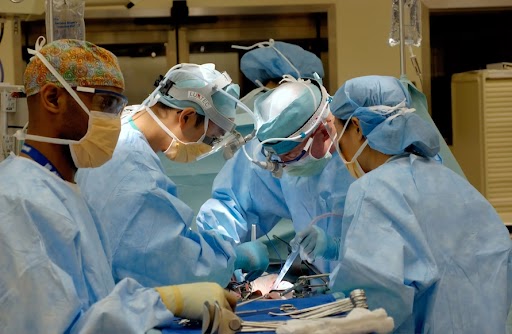Preventive Healthcare
Bone Marrow Transplant: Need, Types And How It Works?

Table of Contents
What is a Bone Marrow Transplant?
A bone marrow transplant is a medical procedure for patients with certain cancers and other diseases such as severe aplastic anaemia, immune deficiency disorders, etc. Bone marrow is a spongy material present inside the bones which produces and stores blood cells. The transplantation of blood stem cells replaces damaged bone marrow with functioning, healthy bone marrow; rejuvenates the immune system to fight back the diseased or damaged cells; and assists in the smooth recovery of the patient.
At a young stage, your blood cells are called hematopoietic stem cells. After maturing they travel into your blood from your bone marrow, therefore a bone marrow transplant is also called a stem cell transplant.
A bone marrow transplant involves taking stem cells from your bone marrow, then filtering those cells and then giving these filtered stem cells back to the donor or to another person.
The main aim of a bone marrow transplant is to infuse healthy bone marrow cells into a person. Since,1998 this procedure has been used to successfully treat diseases such as aplastic anaemia, immune deficiency disorder, lymphomas, leukemias and some solid tumor cancers.
Why is a Bone Marrow Transplant Needed?
Bone marrow transplant is done to cure many types of cancer and some other diseases. Often to cure cancer, the doses of chemotherapy that a patient is subjected to are quite high and this high-frequency radiation can permanently damage or destroy the stem cells in the bone marrow therefore, a transplant may be needed.
In some cases, the stem cells in the bone marrow are already damaged by the occurrence of a disease and so a transplant is needed.
A bone marrow transplant may help you by:
- Adding donor cells to find and kill cancer cells.
- Replacing damaged bone marrow with healthy and functioning bone marrow.
- Regenerating the new immune system to fight recurring cancer cells post-chemotherapy radiation or existing or residual leukemia.
- Replacing your bone marrow and restoring its normal function after high doses of chemotherapy in cancer cells. This process is often called rescue.
- Replacing your bone marrow with a genetically healthy and functioning bone marrow to prevent more damage from a genetic disease process.
The risks and benefits must be weighed in a thorough discussion with your healthcare emphasising 'why a Bone Marrow Transplant'.
You May Need a Bone Marrow Transplant If You Have Any of these Diseases
Following are the examples of the most common diseases that may benefit from a bone marrow transplant:
- Acute or chronic Leukemias
- Severe aplastic anemia
- Hodgkin's or non-Hodgkin's lymphomas
- Multiple myeloma
- Waldenstrom macroglobulinemia
- Sarcoma
- Immune deficiency disorders
- Aplastic anaemia
- myelofibrosis
- amyloidosis
- Myeloproliferative disorders
- Some solid-tumour cancers (in rare cases)
There are Two Main Types of Bone Marrow Transplants
- Autologous- In this procedure, your stem cells are collected from your bone marrow or blood and stored while you are getting your cancer treatment. Post-treatment the stored stem cells are infused back into your bloodstream and travel back to the bone marrow to multiply and produce healthy stem cells.
- Allogeneic- This procedure is done after your cancer treatment, you may get stem cells from a donor whose bone marrow closely matches yours. This donor can be a family member or someone from a national donor list. When the donor is an identical sibling whose tissue type exactly matches yours, it’s called a syngeneic transplant.
Doctors are also able to perform an umbilical cord blood transplant where stem cells are collected from the umbilical cord immediately after the delivery of an infant. These stem cells can reproduce into mature, functioning blood cells quicker and more effectively than the stem cells taken from the bone marrow of another child or adult. These stem cells are tested, typed, counted, and frozen until they are needed for a transplant.
The Process of Preparing for a Bone Marrow Transplant and Finding a Donor
Only your doctor can decide whether or not a bone marrow transplant is the best course of action for you. With a physical examination and multiple tests, your doctor will be able to talk to you about what type of procedure is your best bet and what you can expect.
If your doctor and you reach a common ground and decide to go ahead with a bone marrow transplant, finding a donor will start after matching your bone marrow transplant will be finalised.
A few days before the transplant your doctor will put a tube called a central venous catheter into a vein in your chest. Your doctor along with your medical team will use it to take blood and give you medicine and It will stay there until after your treatment.
Conclusion
A bone marrow transplant is a widely accepted, associated medical procedure for certain types of cancer and other diseases that could damage or destroy the bone marrow of a patient. The transplanting of blood stem cells has pronged applications to produce new blood cells, promote new marrow growth, and regenerate the immune system. This as well promotes patient recovery and survival rates.
However, continuous follow-up care is essential for the patients. Also, a pre-procedure discussion with a healthcare provider and specialists in bone marrow transplants is advisable to learn the risks and benefits. Metropolis Healthcare is a leading pathology lab and diagnostic centre with a multinational network, a comprehensive range of 4000+ clinical laboratory tests and profiles, and senior pathologists to deliver diagnostic solutions. They offer the convenience of a stay-at-home blood collection service, online tracking of samples, and report download from a single app.
They are widely recognized by several brands and institutions and offer a comprehensive Corporate Social Responsibility program. Bone marrow transplant is a boon to many patients and new methods and diagnoses to improve treatment options and decrease complications and side effects are continually being discovered.


























